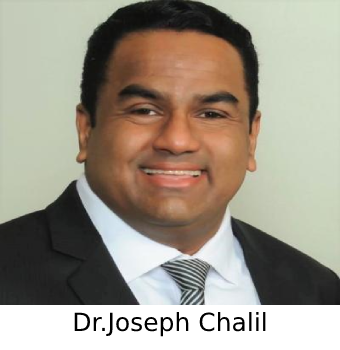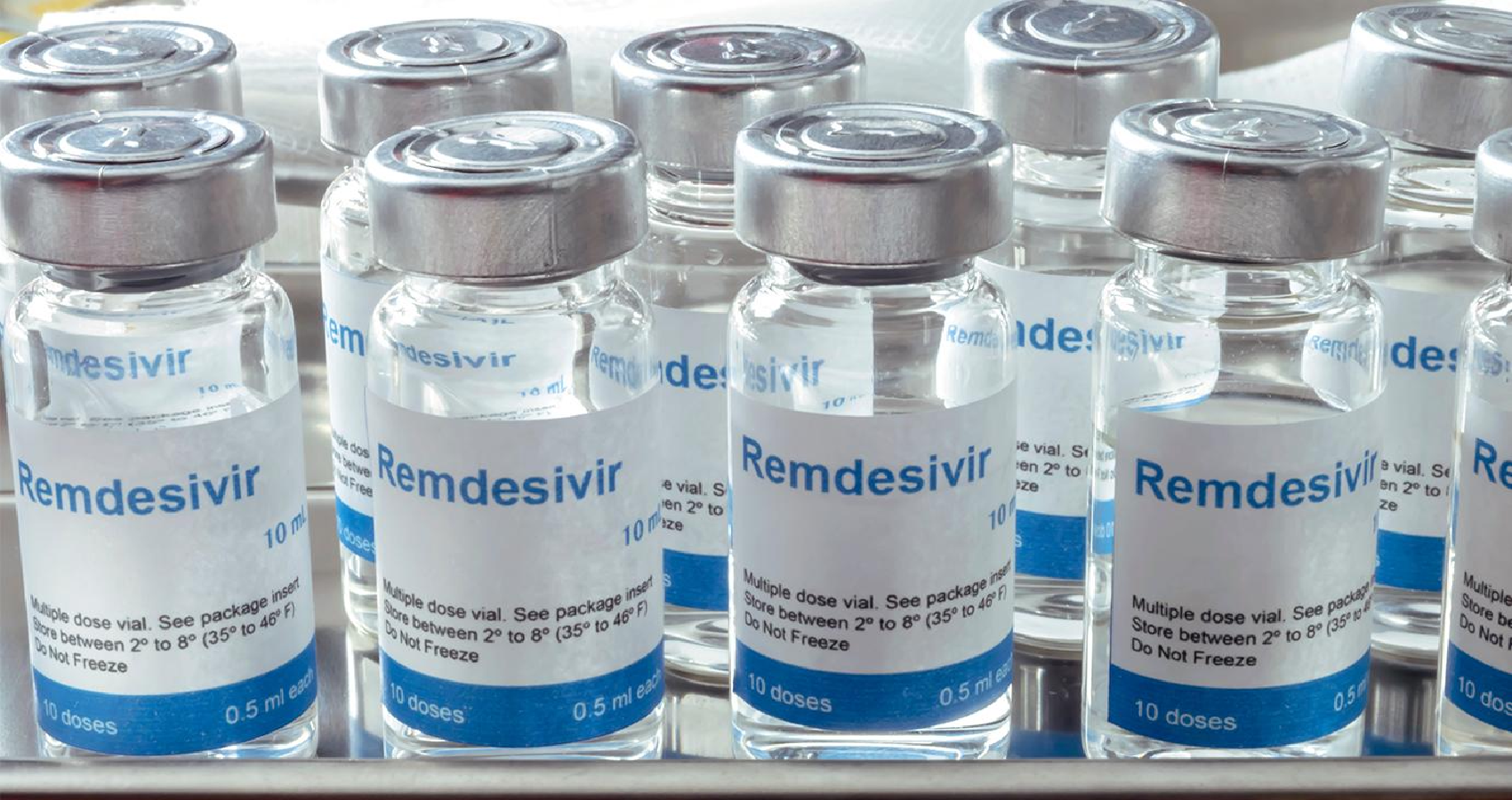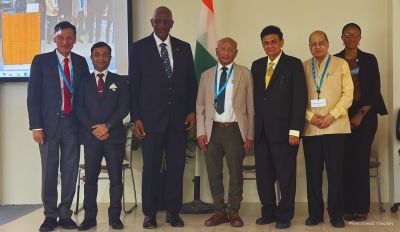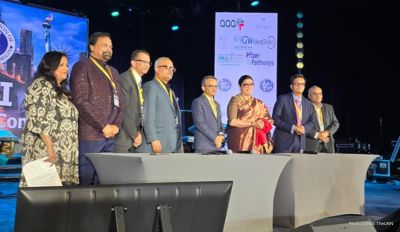The world remains in turmoil over SARS-CoV-2. But, ground-breaking progress in global vaccination has been made in India through Covishield and Covaxin.
Multiple scientific advances in the 21st century have given us a lifeline in nature’s arms race. The world, however, remains in turmoil over SARS-CoV-2, which is continuing to plague even our largest economies, with India being no exception. Ground-breaking progress in global vaccination has been made in India through Covishield and Covaxin. Despite this progress, the country now has the highest per-day rate of positive cases in the world. Furthermore, it is unlikely that vaccines will reach most of the population necessary to stop the spread of the virus. Another major problem in India is for the critically ill with Covid-19, who require mechanical ventilation, as ventilators and trained operators are in short supply in India’s overtaxed hospital system. Beyond this, the mortality rate with invasive mechanical ventilation is at 70%. Both grim facts highlight the overwhelming need to avoid invasive mechanical ventilation. What can India do to combat this? The answer lies within a diversified approach to target treatment of Covid-19 rather than solely addressing infection prevention.
WHAT TOOLS DO WE HAVE TO TREAT COVID-19?
The repurposing of previously used drugs is of great value to patients within our suffocating healthcare systems. Remdesivir, an antiviral treatment previously used for SARS and MERS, has been applied to Covid-19 patients. The efficacy of remdesivir’s five- to ten-day treatment course in hospitalized Covid-19 patients has been globally debated by leading international health care organizations and scientists. The drug demonstrated improvement in recovery in a randomized, double-blind clinical trial versus a placebo group. The US Food and Drug Administration granted the drug emergency use authorization in October 2020 for Covid-19 patients requiring hospitalization. Marketed as Veklury™, remdesivir has recently been approved in India. Manufacture and distributions have been significantly accelerated by scaling up batch sizes, contracting local manufacturers, and adding production facilities. The opportunity exists to curb the damage of SARS-CoV-2 if the region is willing to adapt its current practices to the rapidly changing needs.
 Dexamethasone, an inexpensive corticosteroid, is an older drug that has been found most beneficial in hospitalized patients who require invasive mechanical ventilation. Yet, when given too early in Covid-19, for example, when supplemental oxygen is not required, dexamethasone may be detrimental. Dexamethasone may also be inappropriate for use in patients that have co-morbidities such as obesity and diabetes. Dexamethasone has been used to reduce cellular immune responses and treat patients with acute respiratory distress syndrome (ARDS). It is now repurposed to combat severe symptoms of Covid-19 and is one tool in the Covid-19 treatment armamentarium.
Dexamethasone, an inexpensive corticosteroid, is an older drug that has been found most beneficial in hospitalized patients who require invasive mechanical ventilation. Yet, when given too early in Covid-19, for example, when supplemental oxygen is not required, dexamethasone may be detrimental. Dexamethasone may also be inappropriate for use in patients that have co-morbidities such as obesity and diabetes. Dexamethasone has been used to reduce cellular immune responses and treat patients with acute respiratory distress syndrome (ARDS). It is now repurposed to combat severe symptoms of Covid-19 and is one tool in the Covid-19 treatment armamentarium.
With the crisis pushing us to innovate, we are learning about newer drugs that can fight the virus’ effects. One such promising medication is lenzilumab, a drug created by Humanigen, based in the United States. Lenzilumab targets the initiation of “cytokine storm,” the hyper inflammation consequent to SARS-Cov-2 infection that leads to critical illness in many patients. In the LIVE-AIR phase 3 clinical trial, lenzilumab improved the likelihood of survival and/or ventilation by 54%, over and above remdesivir and dexamethasone, in newly hospitalized Covid-19 patients, who required supplemental oxygen but had not yet progressed to invasive mechanical ventilation. The effect of this one-day treatment was most beneficial in patients who were less than 85 years old and had a biomarker of early hyperinflammatory response; in which lenzilumab improved the likelihood of survival and/or ventilation by nearly three-fold.
Other innovative treatments include tocilizumab (Regeneron) and otilimab (Glaxo Smith Kline). Tocilizumab works on a downstream mediator in the cytokine storm. The open-label RECOVERY study showed that tocilizumab improved survival and other clinical outcomes in hospitalized Covid-19 patients who required respiratory support. However, results from other trials are conflicting, including one that found no benefit in clinical status or survival. Otilimab, like lenzilumab, also targets the early steps in cytokine storm. Otilimab failed to achieve its primary endpoint in a clinical trial, but an exploratory analysis found that it provided benefit in hospitalized, ventilated Covid-19 patients who were over 70 years of age—an effect that is being explored in an additional clinical trial.
WHAT CAN BE DONE?
To date, more than 20 million confirmed cases of coronavirus are reported in India, with an exponential increase in cases over the past month. More than 222,408 people have died, but survivors, funeral directors, and scientists say the actual numbers of infections and deaths in India may be many times more than the reported figures. Therapies, which are quick and easy to administer, can help countries struggling to contain SARS-CoV-2. A new urgency to investigate alternative treatments for Covid-19 is imperative, as this pandemic is suspected of remaining present for several years.
Lessons are to be learned from the case of Hepatitis C. While vaccines for Hepatitis A and B are available and frequently used, the Hepatitis C virus constantly mutates and has escaped the development of an effective vaccine. However, Hepatitis C treatment has been successfully developed. So why should approaches to Covid-19 be different?
WHAT IS THERE TO OVERCOME?
A big consideration for our political leaders is the size of the problem. India’s mammoth population is its biggest resource and one of its greatest challenges. The vaccination process is slow and tedious. With our limited understanding of the virus, it will not be long before we see newer mutations arise, which would require boosters to mediate. Once vaccinated, populations will require following up and, given the geographical challenges, will push back recovery many years.
Another significant challenge the country faces is the daily mortality figures. Symptoms of Covid have an uncanny resemblance to that of many common tropical diseases. It is not the system’s failure but the success of a virus that has been baffling epidemiologists at every corner. Our reality may be far worse than what we perceive it to be. Unaccounted deaths from people dying at home, on the way to hospitals, and the streets remain unaccounted in the national statistics as many are untested for Covid due to test shortages. If there is a drug accessible at local pharmacies, it can reduce these unaccounted deaths—these precious lives.
THE WAY FORWARD
Locking down India for Covid-19 is an untenable answer, as this approach previously almost collapsed the economy. Therefore, prevention and treatments are required and need to be delivered to hospitals and the populace. Inefficiencies in the logistical process of drug and oxygen manufacture and distribution should be at the top of the government’s plan.
It is time to reform the Drugs and Cosmetics Act of 1940 and Rules 1945. Covid-19 drugs, especially those showing efficacy in phase 3 of trials, under reliable international health authorities, should be given conditional approval in India immediately by the Drug Controller General of India (DCGI). Data needs to be collected as done with the NIH in the US and NHS in the UK, and drug efficacy and side effects reported publicly. Manufacturers such as Regeneron, Humanigen, Pfizer, and GSK should be encouraged to produce in India for the local population. We should end this over-reliance on vaccines and focus on treatments. Such open-minded approval processes will decrease dependency on a single solution, give our system more breathing room and drive down prices for life-saving medications.
The biggest democracy in the world needs just as many options when the matter is of saving its own citizens’ lives.
Prof (Dr) Joseph M. Chalil is an Adjunct Professor & Chair of the Complex Health Systems advisory board at Nova Southeastern University’s School of Business; Chairman of the Indo-American Press Club, and The Universal News Network publisher. He recently published a best seller book, “Beyond the Covid-19 Pandemic: Envisioning a Better World by Transforming the Future of Healthcare”.











